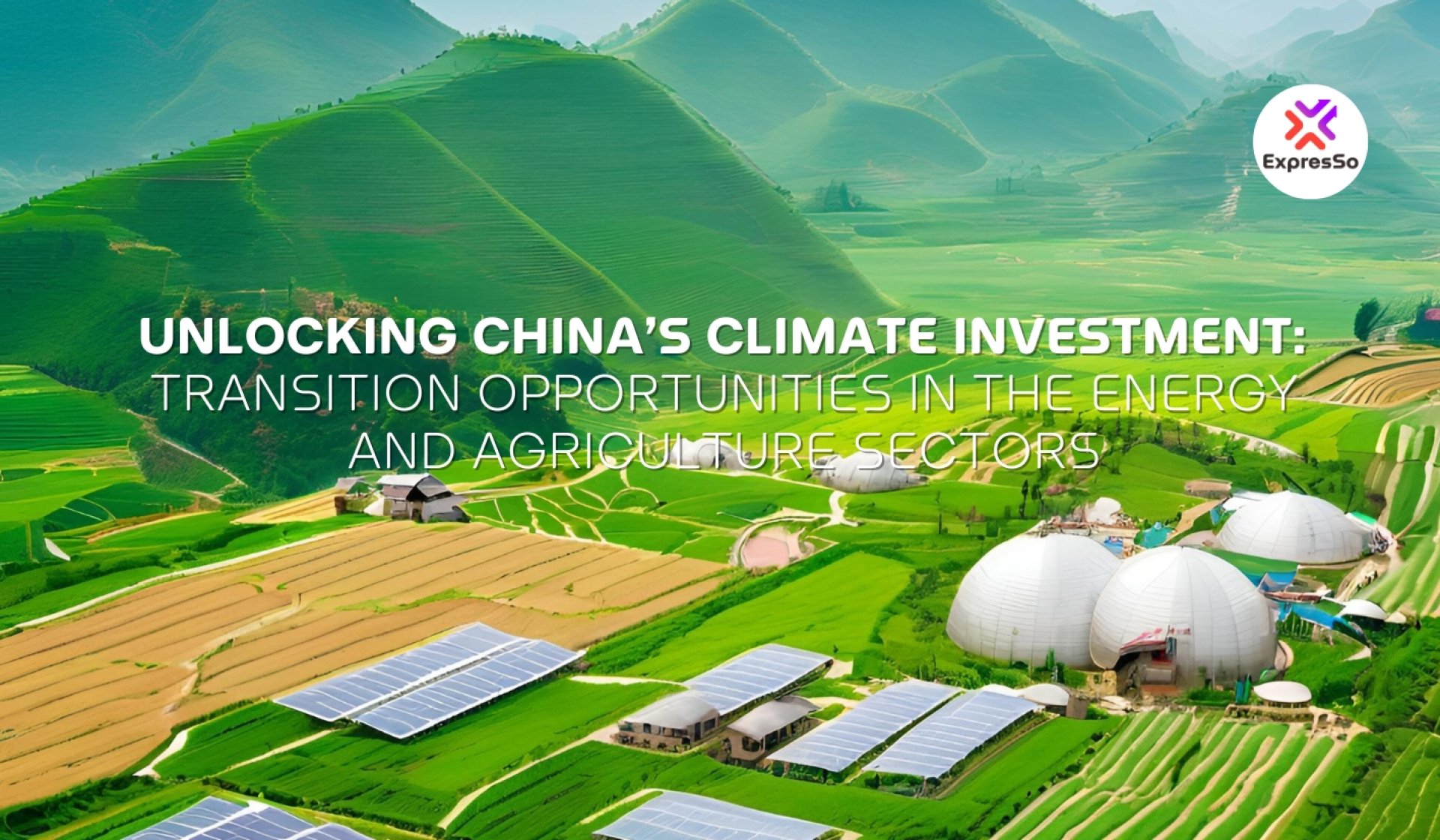Unlocking China's Climate Investment in Key Sectors

The global transition to a net-zero economy presents a critical opportunity for industries to reduce carbon emissions, improve resilience, and secure long-term economic stability. For China, the world's largest emitter of greenhouse gases, the focus is on transforming key sectors that have a substantial impact on both emissions and economic growth. The energy and agriculture sectors play pivotal roles in this transition, with methane emissions being a significant contributor to global warming.
In December 2024, the 2024 China Sustainable Investment Forum (SIF), hosted by Climate Bonds Initiative and SynTao Green Finance, convened experts and stakeholders from government agencies, banks, research institutions, and ESG service providers. The forum focused on identifying investment opportunities in two of China's most emissions-intensive sectors: energy and agriculture. These sectors are central to China's commitment to reducing methane emissions and accelerating its progress toward a greener economy.
Why Focus on Methane Emissions?
Methane is a powerful greenhouse gas, with a global warming potential far greater than carbon dioxide over a short time period. The energy sector contributes around 35% of methane emissions, primarily from fossil energy production and coal mining, while agriculture contributes about 40% of methane emissions through livestock, rice cultivation, and other agricultural activities. Reducing methane emissions in these sectors is critical to mitigating climate change and achieving global climate targets such as those set by the Paris Agreement.
China has already introduced regulations to control methane emissions, but the path forward requires further efforts and capital. The forum highlighted that while China has the necessary capital, advanced science, and technological solutions, more investment is needed to accelerate the methane reduction process in both sectors.
Transition Finance: The Key to Accelerating Change
For the transformation of these key sectors to be successful, significant investment is required. Transition finance has evolved into an essential tool for driving change in high-carbon industries. As governments and private sectors continue to work together, financing models like green bonds and transition bonds have emerged as key instruments for accelerating the low-carbon transition.
In his keynote address, Sean Kidney, CEO of Climate Bonds Initiative, emphasized that sufficient capital and expertise exist to support the transition in the energy and agriculture sectors. However, a significant gap remains in terms of financing. To bridge this gap, there needs to be a concerted effort to increase private sector involvement and mobilize funds for sustainable finance projects.
Wenhong Xie, the Head of Climate Bonds China Programme, also underscored that transition finance is no longer a niche topic but has become a mainstream investment trend. He highlighted that methane mitigation has gained traction as a crucial issue in the investment community, attracting attention for both its climate change mitigation potential and the economic benefits it offers.
Methane Reduction in Agriculture: A Major Opportunity
Agriculture in China plays a vital role in feeding the country's 1.4 billion people, and the sector is both a major emitter of methane and vulnerable to the impacts of climate change. The forum brought attention to how agri-food systems must undergo a significant transformation to reduce emissions while ensuring food security and sustainability.
One of the most promising opportunities for mitigating methane emissions in agriculture is improving farming practices, such as better livestock management, enhanced rice paddy management, and innovations in manure treatment. The agricultural sector also stands to benefit from advances in sustainable practices, which can create both economic and environmental benefits.
Shaoxin Li, the Climate Bonds China Agriculture Transitions Lead, noted that China's agricultural sector has immense potential for improvement, but financing remains a bottleneck. Public capital has predominantly supported agriculture in China, but this has not been enough to bring about the level of transformation needed. The key, as highlighted in the forum, is mobilizing private capital through green bond standards and other innovative financial models to support sustainable agricultural practices.
Future Outlook and the Role of Investment
The road to transforming China's energy and agricultural sectors requires more than just regulatory support. It demands a robust partnership between the public and private sectors, a collective effort to drive policy change, and significant investment in green technologies and innovations. The forum concluded with a call to action for investors to recognize the vast potential of the energy and agriculture sectors and to direct more capital into the green transition.
The Chinese government's commitment to reducing methane emissions and promoting sustainable finance is paving the way for a greener, more resilient economy. As China continues to position itself as a leader in green finance, other nations can look to its example and take similar steps to drive global change.
How Can We Accelerate the Global Transition?
As more countries look to China's green finance model as a blueprint, the key question remains: How can we accelerate the global transition to a more sustainable, low-carbon future? China's steps forward are just the beginning, and the global community must work together to ensure that the climate transition is both rapid and just for all nations.
Reference: Climate Bonds Blog (climatebonds.net)


